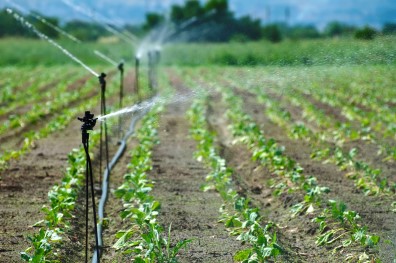A Call for an Integrated Approach
The CFS aimed to coordinate a global approach to food security. The CFS/High Level Panel of Experts on Food Security and Nutrition (HLPE) Report on water and food (May 2015) was the first comprehensive effort to bring together water and food security and nutrition.
“It goes beyond the usual focus on agricultural issues. It addresses 1/ The multiple linkages between water and food security and nutrition, 2/ Managing water scarcities in agriculture and food systems and 3/ Challenges of water governance for food security and nutrition”, said Lyla Mehta, HLPE Project Team Leader.
The recommendations to CFS members to prepare resolutions of their 42nd session, in Rome from 12-15 October 2015, focused on integration and prioritization.
GWP: A Neutral Broker
Bringing together a range of stakeholders (3,000 organizations) in 173 countries, GWP advocates, facilitates, and supports change processes for the sustainable management of water resources. As a mechanism for coordinated action, it adds value to the work of other development partners. Eleven Country Water Partnerships (Benin, Burkina Faso, Cameroon, Ethiopia, Lesotho, Malawi, Mali, Nigeria, Sudan, Uganda, Zimbabwe) decided to seize the opportunity created by CFS to engage further with Food Security and Nutrition (FSN) to make a tangible contribution at country level.
As a first step, they took the HLPE report, explained it to country water and FSN stakeholders and facilitated a national dialog on HLPE recommendations against country priorities. The country dialogues were implemented from mid-May 2015 - when the HLPE report was released - to September 2015. A similar process was adopted in all countries with a first step looking at strategic documents and policies, existing reports and statistics, consultations with relevant resource persons in light of the HLPE report.
The second step was to convene national workshops with interested stakeholders to discuss and finalize the draft document. More than 200 concerned ministers, farmers organizations, CSOs, and development partners reached in each country a common understanding of the urgent needs and priority actions to be taken to tangibly impact the functioning of the Water Energy Food Ecosystems nexus for better livelihoods. “It is our responsbility to concretely operationalize at country level the general strategies,” agreed Cameroon stakeholders.
Next Step: Implementation
With its “SDGs preparedness facility”, its Water and Climate Development Programme, and with partners, GWP will coordinate the implementation of a programme addressing technical and institutional country-identified priorities in the context of CFS resolutions and the COP 21 agenda for solutions.

